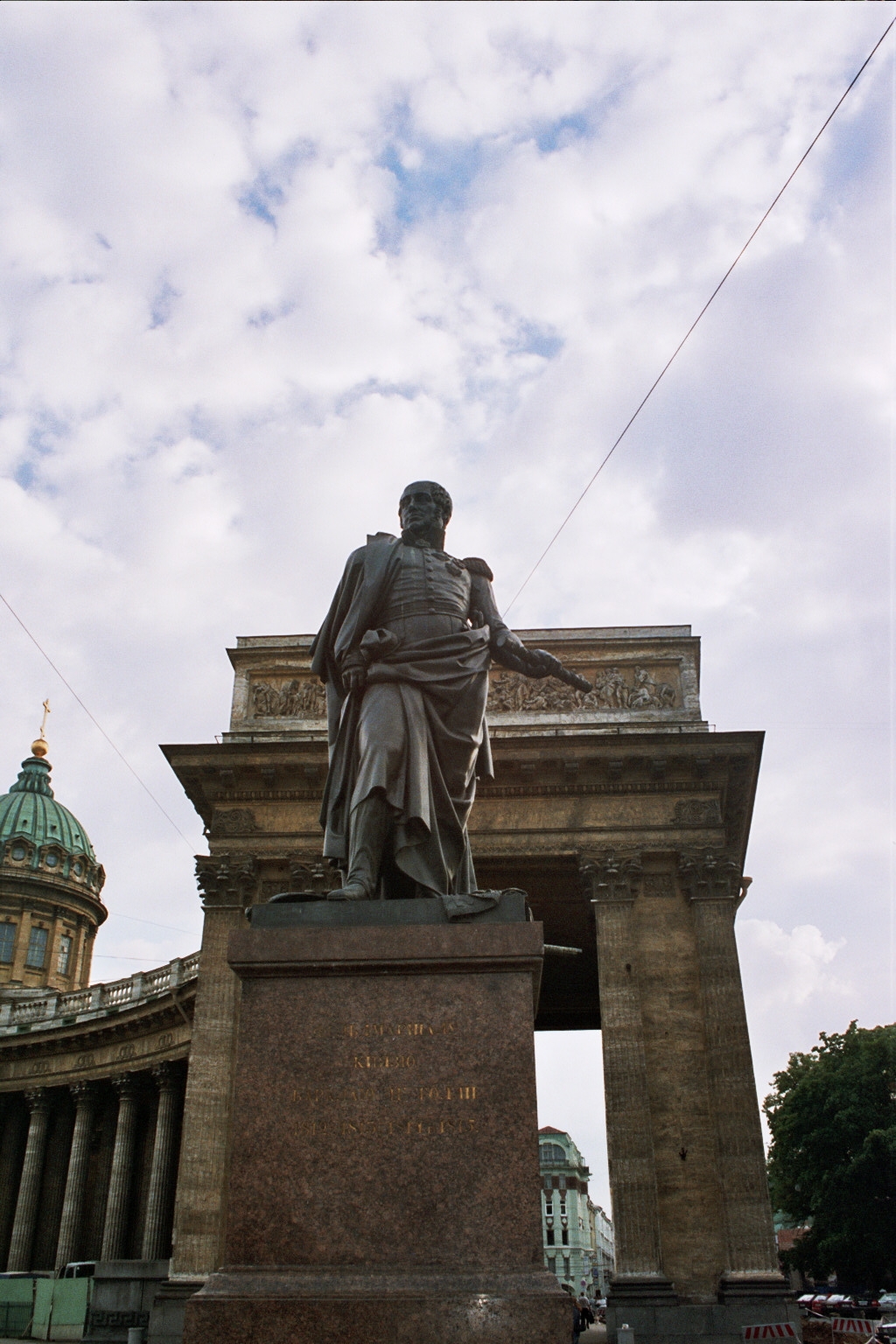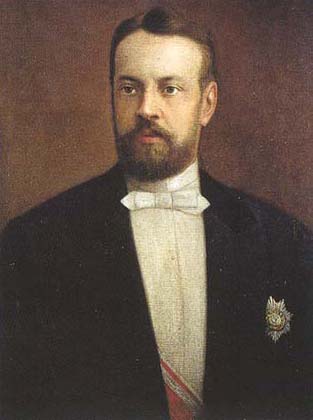|
Russian Border Guard
The Border Service of the Federal Security Service of the Russian Federation (PS FSB Rossii) (russian: –Я–Њ–≥—А–∞–љ–Є—З–љ–∞—П —Б–ї—Г–ґ–±–∞ –§–µ–і–µ—А–∞–ї—М–љ–Њ–є —Б–ї—Г–ґ–±—Л –±–µ–Ј–Њ–њ–∞—Б–љ–Њ—Б—В–Є –†–Њ—Б—Б–Є–є—Б–Ї–Њ–є –§–µ–і–µ—А–∞—Ж–Є–Є (–Я–° –§–°–С –†–Њ—Б—Б–Є–Є)) is a branch of Federal Security Service of Russia tasked with patrol of the Russian border. The terms Border Service of Russia (russian: –Я–Њ–≥—А–∞–љ–Є—З–љ–∞—П —Б–ї—Г–ґ–±–∞ –†–Њ—Б—Б–Є–Є) and Border Force of Russia (russian: –Я–Њ–≥—А–∞–љ–Є—З–љ—Л–µ –≤–Њ–є—Б–Ї–∞ –†–Њ—Б—Б–Є–Є) are also common, while in English, the terms "Border Guards" and "Border Troops" are frequently used to designate this service. The Border service numbers around 170,000 active members, which includes the Russian maritime border guard units (i.e., the coast guard). History Tsarist and Imperial Russia One can trace the origin of the Russian border service to 1571 and the work of Prince Mikhail Vorotynsky (died 1573) and his Great Abatis Bord ... [...More Info...] [...Related Items...] OR: [Wikipedia] [Google] [Baidu] |
Lubyanka Square
Lubyanskaya Square (, Lubyanskaya ploshchad'), or simply Lubyanka in Moscow lies about north-east of Red Square. History first records its name in 1480, when Grand Prince Ivan III of Moscow, who had conquered Novgorod in 1471, settled many Novgorodians in the area. They built the church of St Sophia, modelled after St Sophia Cathedral in Novgorod, and called the area ''Lubyanka'' after the Lubyanitsa street of their native city. Name The square was renamed Dzerzhinsky Square for many years (1926вАУ1990) in honor of the founder of the Soviet security service Felix Dzerzhinsky. Square center A fountain used to stand in front of the building, at the center of the Lubyanka Square. In 1958, the fountain at the center of the Lubyanka Square was replaced by an 11-ton statue of Felix Dzerzhinsky ("Iron Felix"), founder of the Cheka, made by Yevgeny Vuchetich. On October 30, 1990, the Memorial organization erected the Solovetsky Stone, a monument to the victims of the Gulag, a sim ... [...More Info...] [...Related Items...] OR: [Wikipedia] [Google] [Baidu] |
Michael Andreas Barclay De Tolly
Prince Michael Andreas Barclay de Tolly (german: F√Љrst Michael Andreas Barclay de Tolly; baptised вАУ ) was an Imperial Russian soldier of Baltic German and Scottish origin, who was commander-in-chief and Minister of War of the Russian Empire during Napoleon's invasion in 1812 and the War of the Sixth Coalition. Barclay implemented a number of reforms during this time that improved supply system in the army, doubled the number of army troops, and implemented new combat training principles. He was also the Governor-General of Finland. He was born into a German-speaking noble family from Livonia, who were of Scottish descent. His father was the first of his family to be accepted into the Russian nobility. Barclay joined the Imperial Russian Army at a young age in 1776. He served with distinction in the Russo-Turkish War (1787вАУ92), the Russo-Swedish War (1788вАУ90), and the Ko≈Ыciuszko Uprising (1794). In 1806, Barclay began commanding in the Napoleonic Wars, distinguishing h ... [...More Info...] [...Related Items...] OR: [Wikipedia] [Google] [Baidu] |
Soviet Union
The Soviet Union,. officially the Union of Soviet Socialist Republics. (USSR),. was a transcontinental country that spanned much of Eurasia from 1922 to 1991. A flagship communist state, it was nominally a federal union of fifteen national republics; in practice, both its government and its economy were highly centralized until its final years. It was a one-party state governed by the Communist Party of the Soviet Union, with the city of Moscow serving as its capital as well as that of its largest and most populous republic: the Russian SFSR. Other major cities included Leningrad (Russian SFSR), Kiev (Ukrainian SSR), Minsk ( Byelorussian SSR), Tashkent (Uzbek SSR), Alma-Ata (Kazakh SSR), and Novosibirsk (Russian SFSR). It was the largest country in the world, covering over and spanning eleven time zones. The country's roots lay in the October Revolution of 1917, when the Bolsheviks, under the leadership of Vladimir Lenin, overthrew the Russian Provisional Government ... [...More Info...] [...Related Items...] OR: [Wikipedia] [Google] [Baidu] |
Border Guard
A border guard of a country is a national security agency that performs border security. Some of the national border guard agencies also perform coast guard (as in Federal Police (Germany), Germany, Guardia di Finanza, Italy or State Border Guard Service of Ukraine, Ukraine) and Search and rescue, rescue service duties. Name and uniform In different countries, names of particular border guard services vary significantly. The service may be called "police", "guard", "troops" or "sentinel" and the name would refer to the nation's official term for the state border - whether it is "frontier" or "border". Most border guards of the world use dark green-colored elements on their uniform, insignia or flags. Tasks Peacetime duties Typical tasks of a border guard are: * Controlling and guarding a nation's borders; * Controlling border crossing persons, vehicles, and travel documents; * Preventing illegal border crossing of persons, vehicles, cargoes and other goods; * Controlling tr ... [...More Info...] [...Related Items...] OR: [Wikipedia] [Google] [Baidu] |
Military
A military, also known collectively as armed forces, is a heavily armed, highly organized force primarily intended for warfare. It is typically authorized and maintained by a sovereign state, with its members identifiable by their distinct military uniform. It may consist of one or more military branches such as an army, navy, air force, space force, marines, or coast guard. The main task of the military is usually defined as defence of the state and its interests against external armed threats. In broad usage, the terms ''armed forces'' and ''military'' are often treated as synonymous, although in technical usage a distinction is sometimes made in which a country's armed forces may include both its military and other paramilitary forces. There are various forms of irregular military forces, not belonging to a recognized state; though they share many attributes with regular military forces, they are less often referred to as simply ''military''. A nation's military may ... [...More Info...] [...Related Items...] OR: [Wikipedia] [Google] [Baidu] |
Nkvd 01 Bw
The People's Commissariat for Internal Affairs (russian: –Э–∞—А–ЊћБ–і–љ—Л–є –Ї–Њ–Љ–Є—Б—Б–∞—А–Є–∞ћБ—В –≤–љ—ГћБ—В—А–µ–љ–љ–Є—Е –і–µ–ї, Nar√≥dnyy komissari√°t vn√Їtrennikh del, ), abbreviated NKVD ( ), was the interior ministry of the Soviet Union. Established in 1917 as NKVD of the Russian Soviet Federative Socialist Republic, the agency was originally tasked with conducting regular police work and overseeing the country's prisons and labor camps. It was disbanded in 1930, with its functions being dispersed among other agencies, only to be reinstated as an all-union commissariat in 1934. The functions of the OGPU (the secret police organization) were transferred to the NKVD around the year 1930, giving it a monopoly over law enforcement activities that lasted until the end of World War II. During this period, the NKVD included both ordinary public order activities, and secret police activities. The NKVD is known for its role in political repression and for carrying out the Great Pur ... [...More Info...] [...Related Items...] OR: [Wikipedia] [Google] [Baidu] |
Alexander III Of Russia
Alexander III ( rus, –Р–ї–µ–Ї—Б–∞ћБ–љ–і—А III –Р–ї–µ–Ї—Б–∞ћБ–љ–і—А–Њ–≤–Є—З, r=Aleksandr III Aleksandrovich; 10 March 18451 November 1894) was Emperor of Russia, King of Poland and Grand Duke of Finland from 13 March 1881 until his death in 1894. He was highly reactionary and reversed some of the liberal reforms of his father, Alexander II. This policy is known in Russia as "counter-reforms" ( rus, –Ї–Њ–љ—В—А—А–µ—Д–Њ—А–Љ—Л). Under the influence of Konstantin Pobedonostsev (1827вАУ1907), he opposed any reform that limited his autocratic rule. During his reign, Russia fought no major wars; he was therefore styled "The Peacemaker" ( rus, –Ь–Є—А–Њ—В–≤–Њ—А–µ—Ж, Mirotvorets, p=m ≤…™r…РЋИtvor ≤…™tЌ°s). It was he who helped forge the Russo-French Alliance. Personality Grand Duke Alexander Alexandrovich was born on 10 March 1845 at the Winter Palace in Saint Petersburg, Russian Empire, the second son and third child of Tsesarevich Alexander (Future Alexander II) and his first wife ... [...More Info...] [...Related Items...] OR: [Wikipedia] [Google] [Baidu] |
Sergei Witte
Count Sergei Yulyevich Witte (; ), also known as Sergius Witte, was a Russian statesman who served as the first prime minister of the Russian Empire, replacing the tsar as head of the government. Neither a liberal nor a conservative, he attracted foreign capital to boost Russia's industrialization. Witte's strategy was to avoid the danger of wars. Witte served under the last two emperors of Russia, Alexander III () and Nicholas II ().Harcave, Sidney. (2004)''Count Sergei Witte and the Twilight of Imperial Russia: A Biography,'' p. xiii./ref> During the Russo-Turkish War (1877вАУ78), he had risen to a position in which he controlled all the traffic passing to the front along the lines of the Odessa Railways. As finance minister from 1892 to 1903, Witte presided over extensive industrialization and achieved government monopoly control over an expanded system of railroad lines. Following months of civil unrest and outbreaks of violence in what became known as the 1905 Russian ... [...More Info...] [...Related Items...] OR: [Wikipedia] [Google] [Baidu] |




